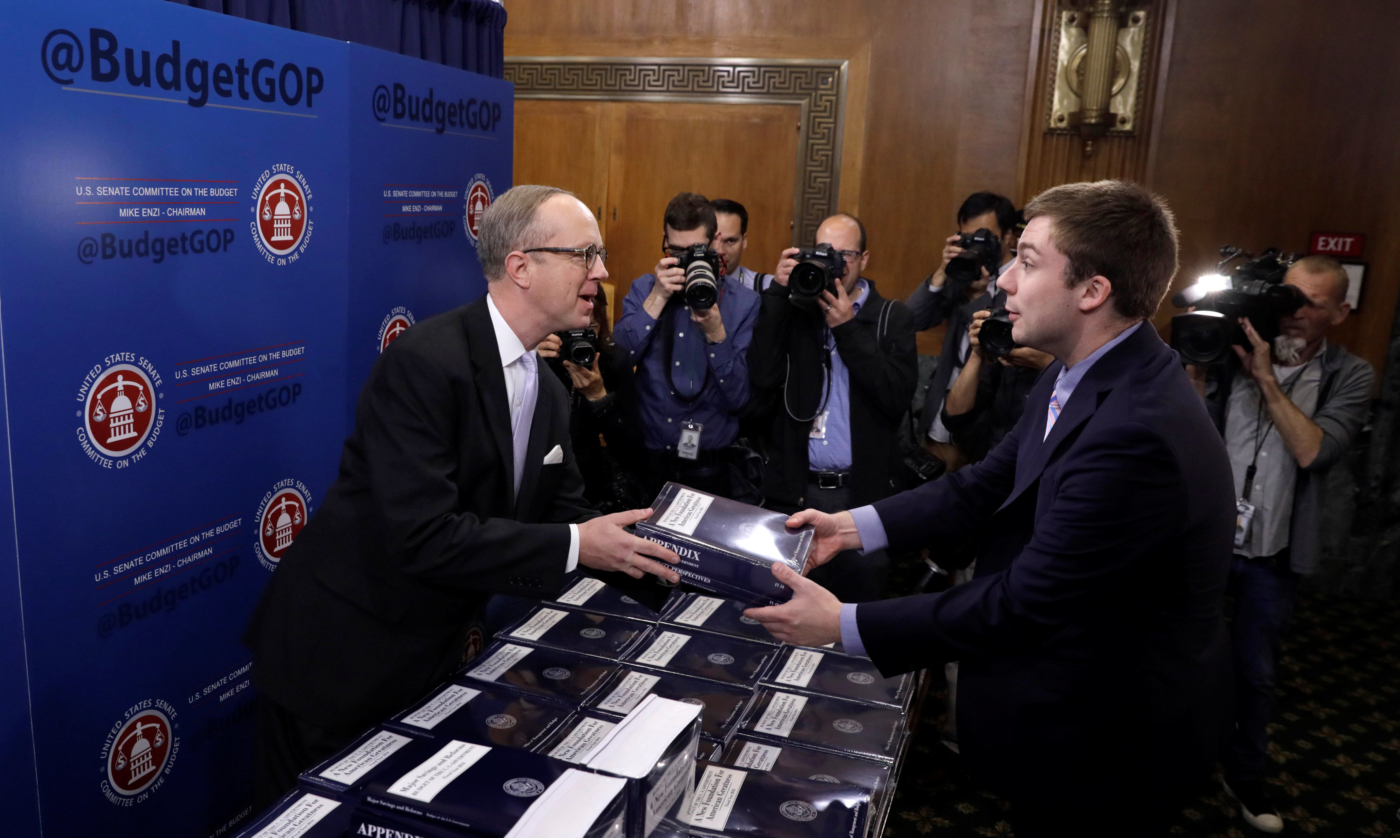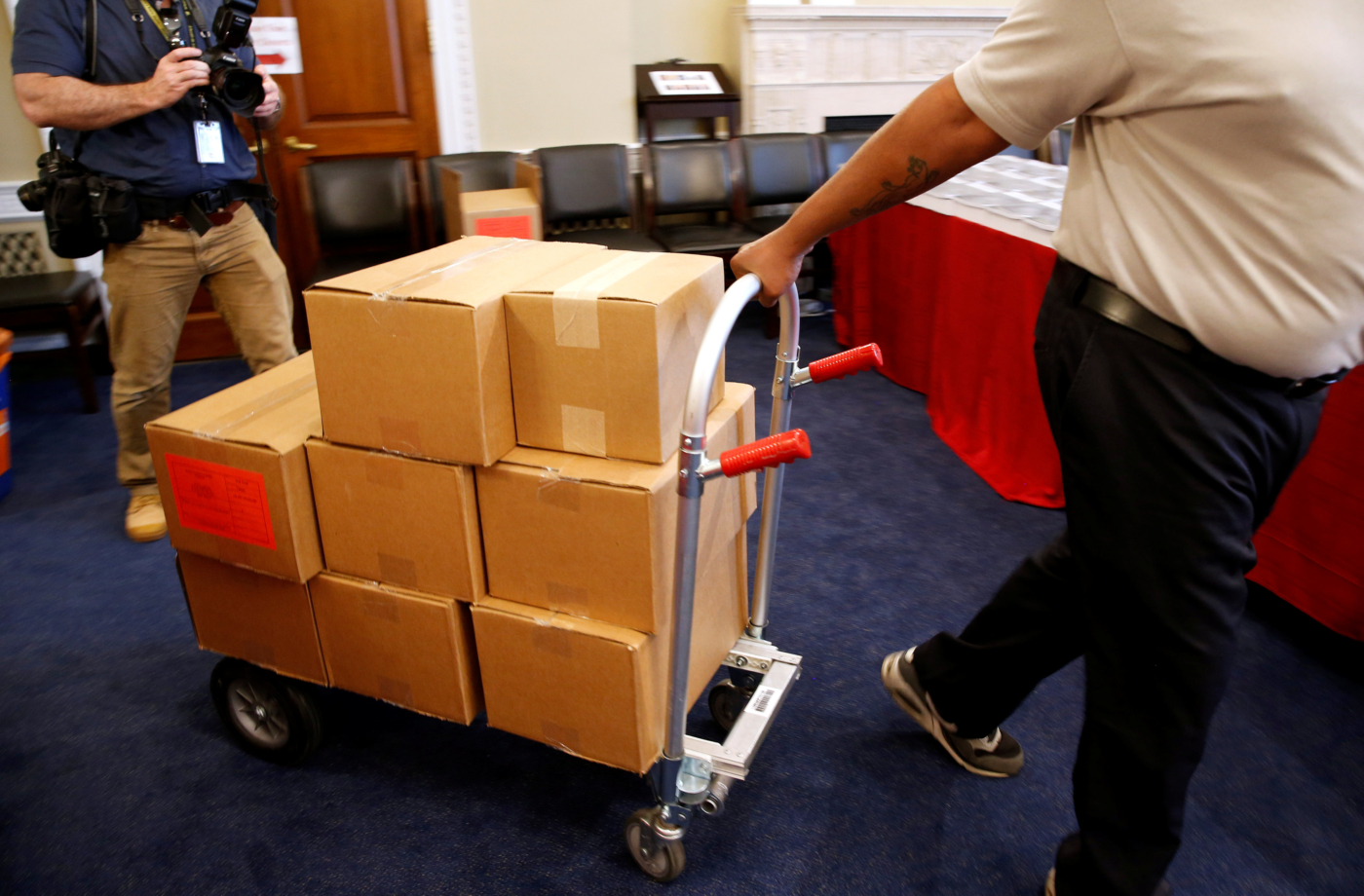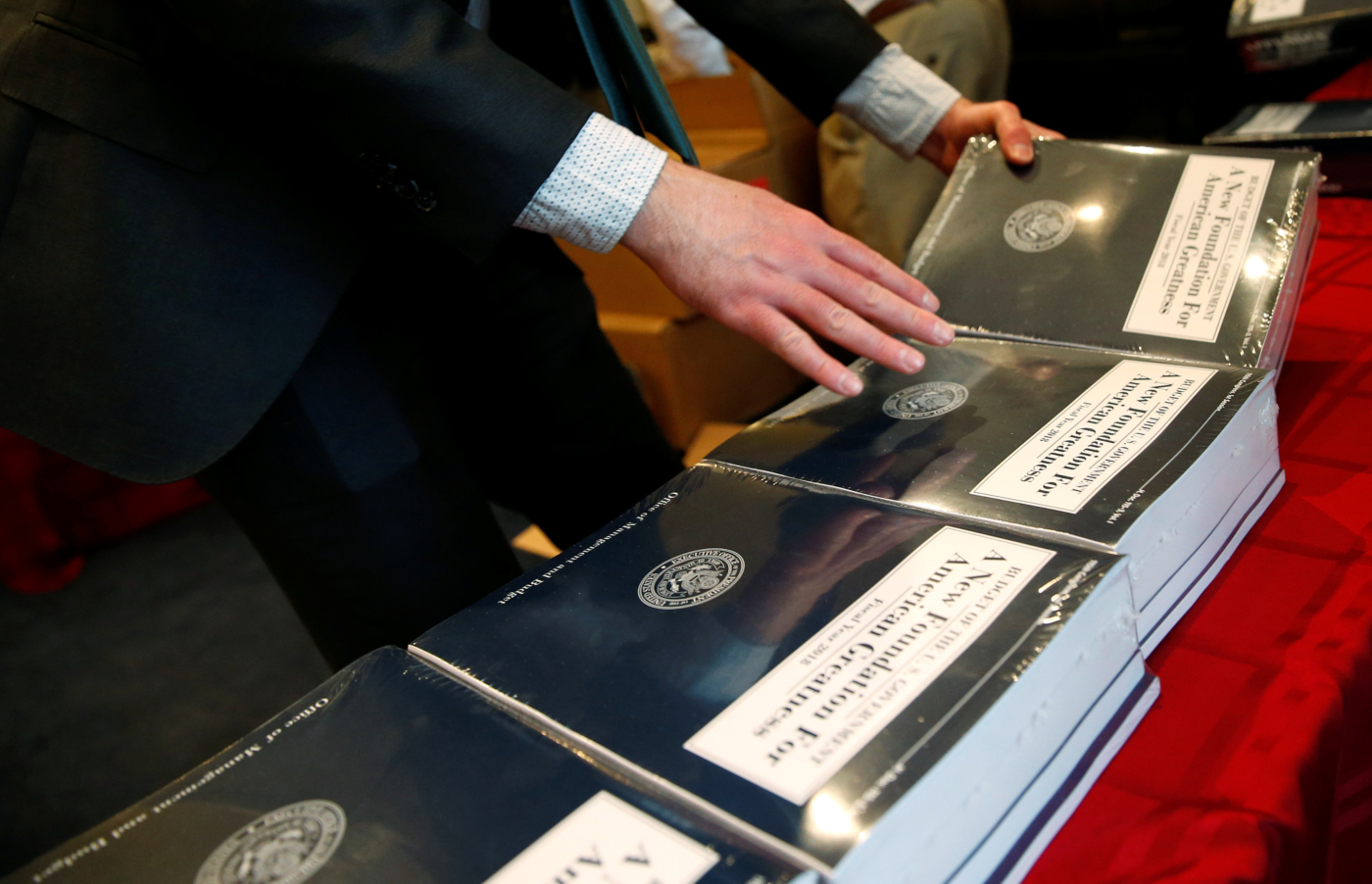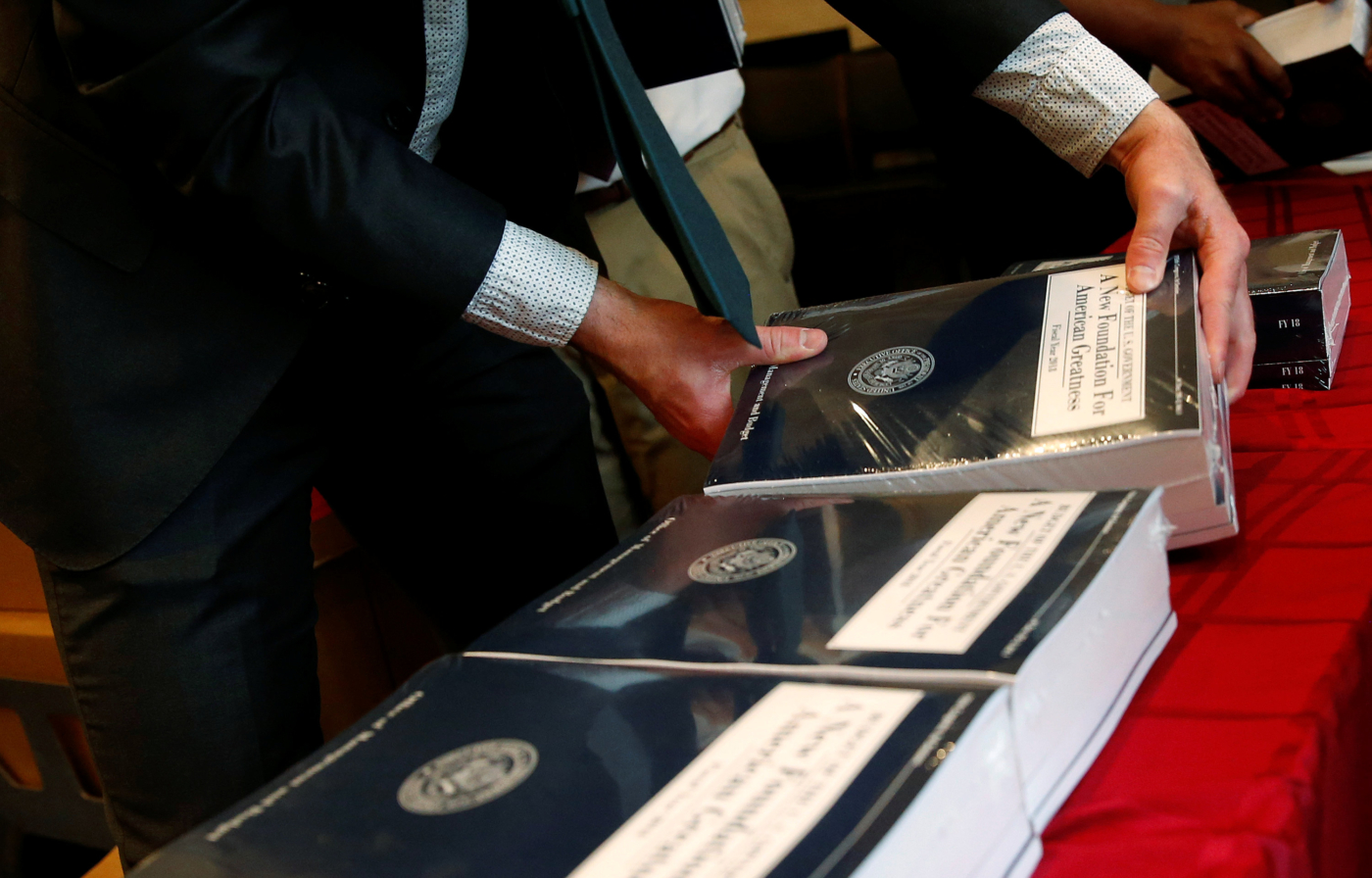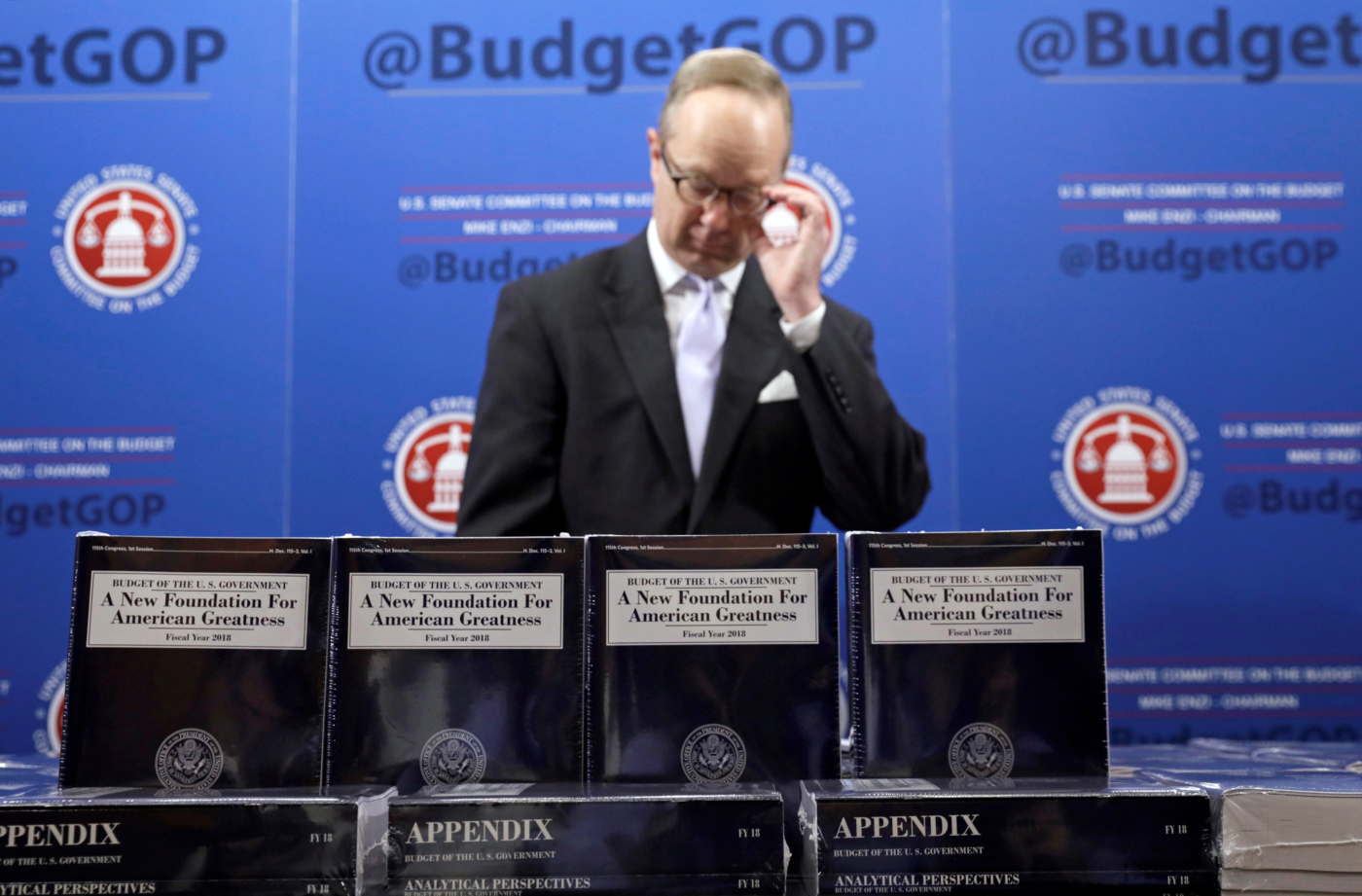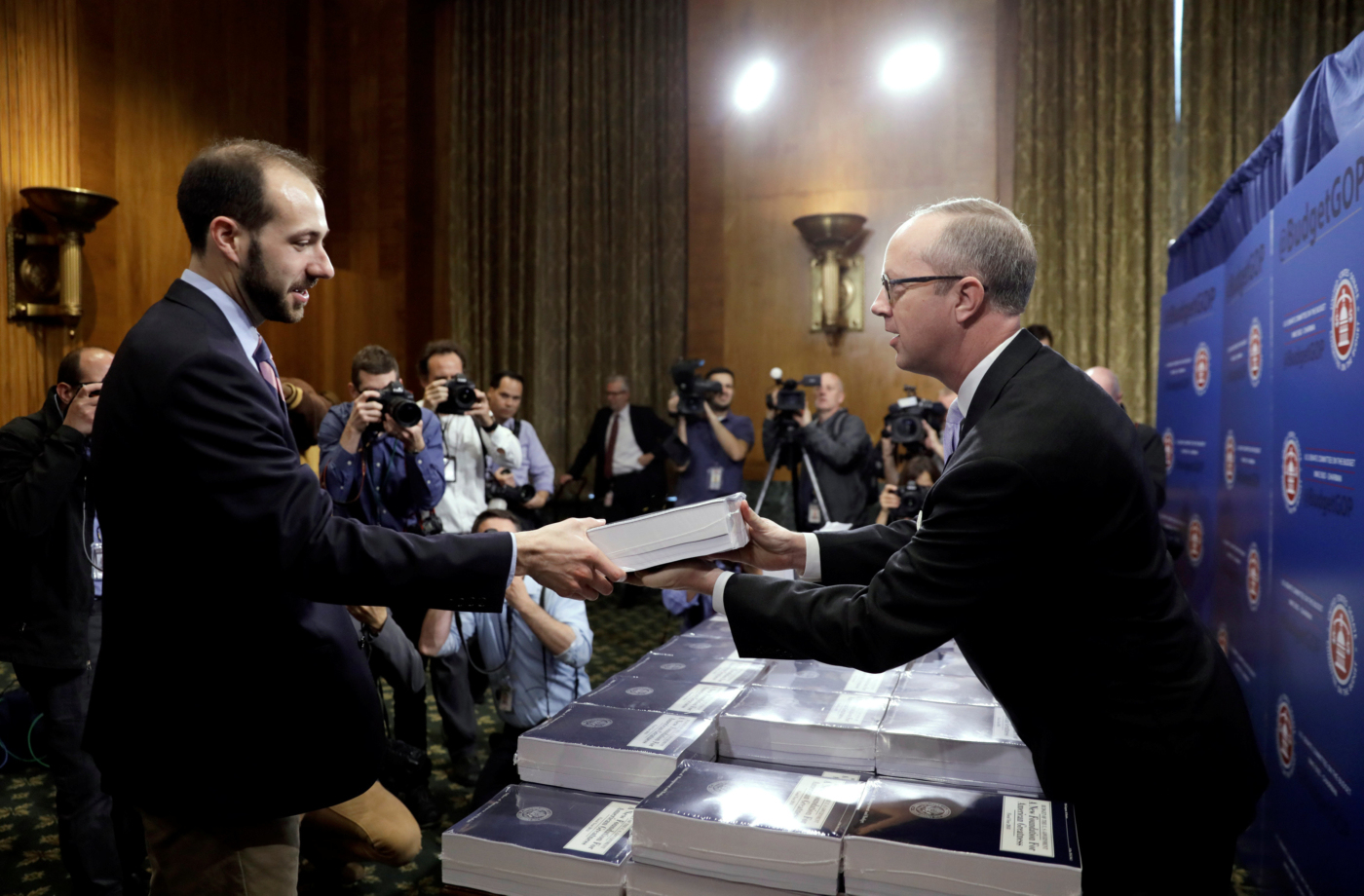By Roberta Rampton
WASHINGTON - U.S. President Donald Trump wants lawmakers to slash healthcare and food assistance programs for the poor as they cut $3.6 trillion in government spending over 10 years, according to the White House's budget proposal for next year.
The Trump administration on Tuesday will ask Republicans who control the U.S. Congress - and the federal purse strings - for the politically sensitive cuts in its first full budget.
The proposal in its current form is unlikely to be approved by lawmakers as they craft their own tax and spending plans but the document sets out Trump's budget priorities and lays down a marker with Congress.
Trump seeks to balance the budget by the end of the decade, according to a preview given to reporters on Monday. There is some new spending in his plan for fiscal year 2018, which starts in October.
The Pentagon would get a boost, and there would be a $1.6 billion down payment to begin building a wall along the border with Mexico, which was a central promise of Trump's presidential campaign.
Trump's proposal foresees selling half of the U.S. emergency oil stockpile, created in 1975 after the Arab oil embargo caused fears of price spikes. The announcement surprised oil markets, and pulled down U.S. crude prices.
The biggest savings would come from cuts to the Medicaid healthcare program for the poor made as part of a Republican healthcare bill passed by the House of Representatives.
Trump, who is traveling overseas this week, wants lawmakers to cut more than $800 billion from Medicaid and more than $192 billion from food stamps.
U.S. stocks were slightly higher on Tuesday ahead of the budget's full unveiling later in the day.
"In the U.S. all eyes are on Trump's budget proposal. The budget will not pass in its current state, but people will keep an eye on any sort of indication of corporate tax reform as well as infrastructure spending," said Nadia Lovell, U.S. Equity Strategist at J.P. Morgan Private Bank in New York.
Republicans are under pressure to deliver on promised tax cuts, the cornerstone of the Trump administration's pro-business economic agenda, which would cut the business tax rate to 15 percent from 35 percent, and reduce the number of personal tax brackets.
But their policy agenda has stalled as the White House grapples with the political fallout from Trump's firing of former FBI Director James Comey.
Comey had been leading a probe of alleged Russian meddling in the 2016 U.S. election.
MEDICARE, SOCIAL SECURITY
In his budget, Trump upheld his promise - for the most part - that he would not cut Medicare and Social Security, two social insurance programs that deficit hawks have long targeted for reforms.
Those so-called entitlement programs may not come out of Capitol Hill unscathed, however. House Majority Leader Kevin McCarthy, a fellow Republican, said lawmakers would have to reform both programs to save them.
"We have to look at the entitlements if we believe that we want them to be there for future generations," he told CNBC.
The healthcare bill passed by the House aims to gut the Obama administration's signature 2010 Affordable Care Act, known as Obamacare, that expanded insurance coverage and the government-run Medicaid program. But it faces an uncertain future in the Senate, which is writing its own law.
The White House proposed changes that would require more childless people receiving help from the Supplemental Nutrition Assistance Program, better known as food stamps, to work.
The plan would slash supports for farmers and impose user fees for meat inspection. Another politically fraught item is a proposal for cuts to the U.S. Postal Service, a goal that has long eluded lawmakers and administrations from both political parties.
The first look at the plan came in a "skinny budget" released in March which received a tepid response from Congress.
Most government departments would see steep cuts, particularly the State Department and the Environmental Protection Agency.
The budget includes $25 billion for a plan to give parents six weeks of paid leave after the birth or adoption of a child, and $200 billion to encourage state and local governments to boost spending on roads, bridges, airports and other infrastructure programs.
The plan drew immediate fire from lobby groups, including from the Committee for a Responsible Federal Budget, which said it relied on "rosy assumptions," gimmicks and unrealistic cuts.
"While we appreciate the administration's focus on reducing the debt, when using more realistic assumptions, the president’s budget does not add up," Maya MacGuineas, the group's president, said in a statement.
Trump's plan relies on forecasts for economic growth of 3 percent a year by the end of his first term - well beyond Congressional Budget Office assumptions of 1.9 percent growth.
"That assumes a pessimism about America, about the economy, about its people, about its culture, that we’re simply refusing to accept," White House budget director Mick Mulvaney said of the CBO assumptions.
(Reuters)
(Additional reporting by Yasmeen Abutaleb, David Shepardson, Timothy Gardner, Ginger Gibson, Jason Lange and Julia Edwards Ainsley in Washington, and PJ Huffstutter in Chicago; Writing by Alistair Bell; Editing by Peter Cooney and Andrea Ricci)


